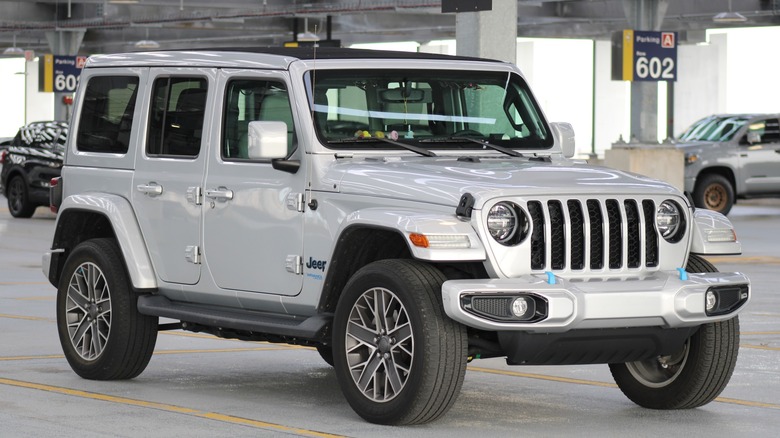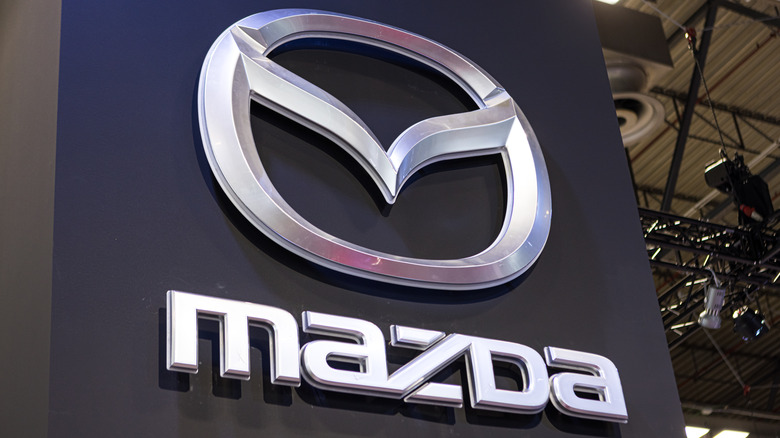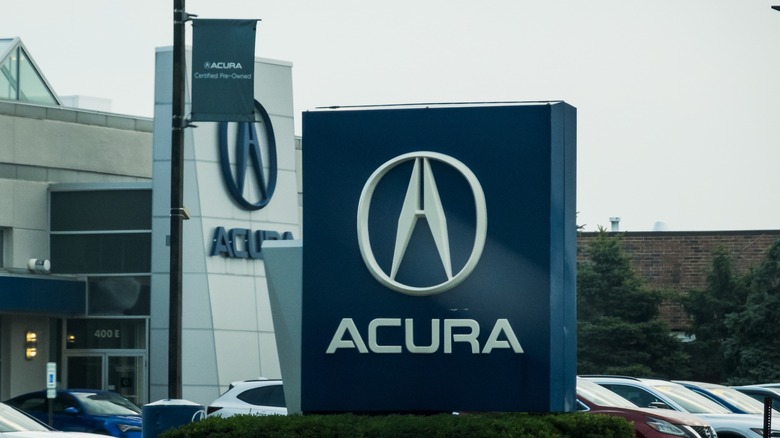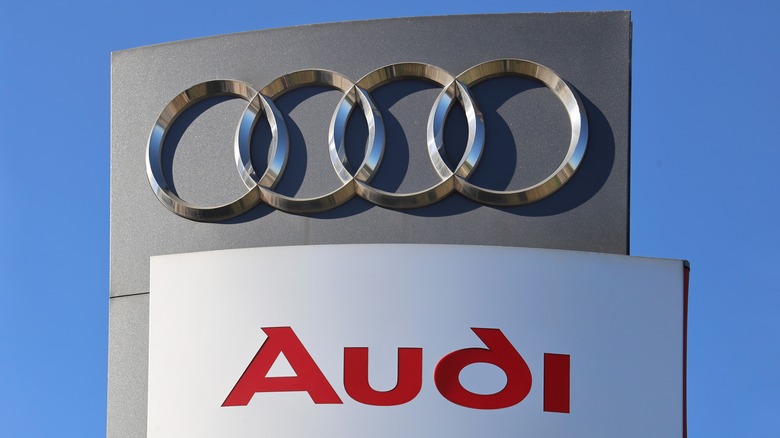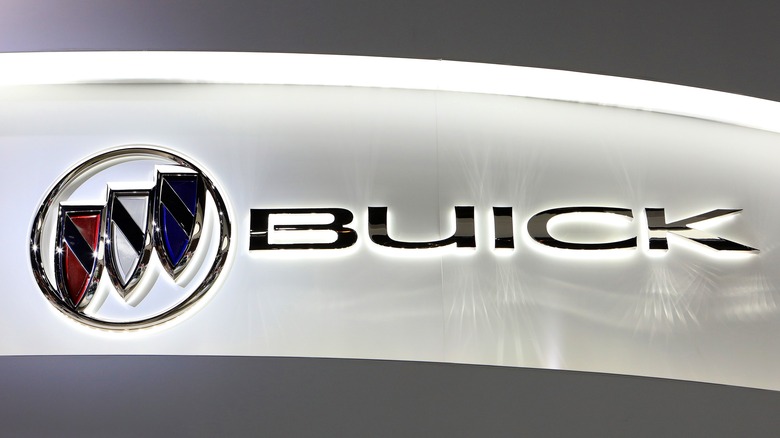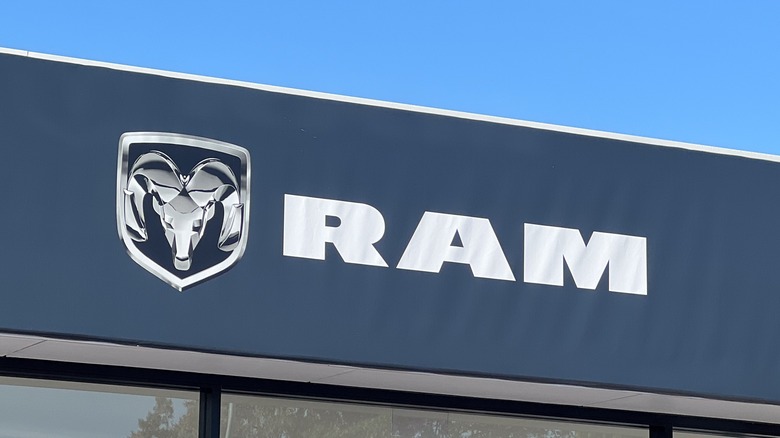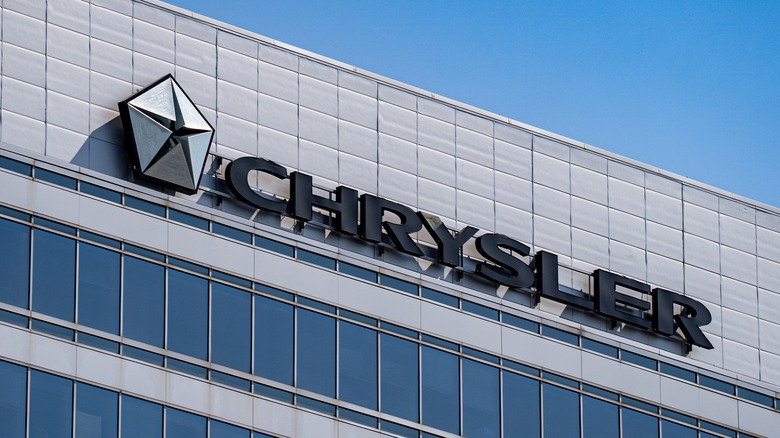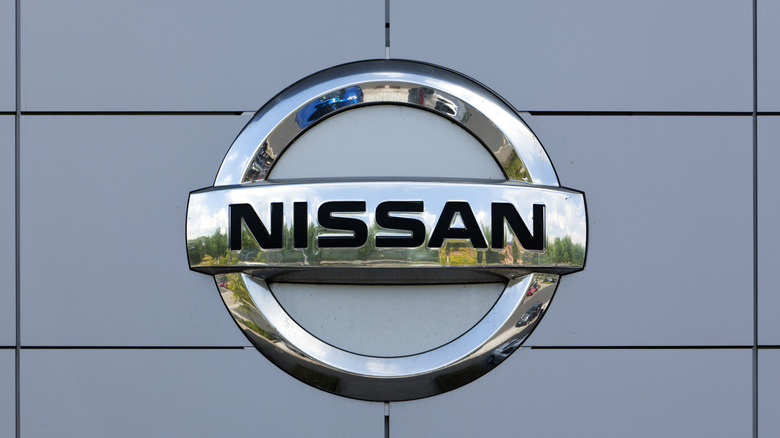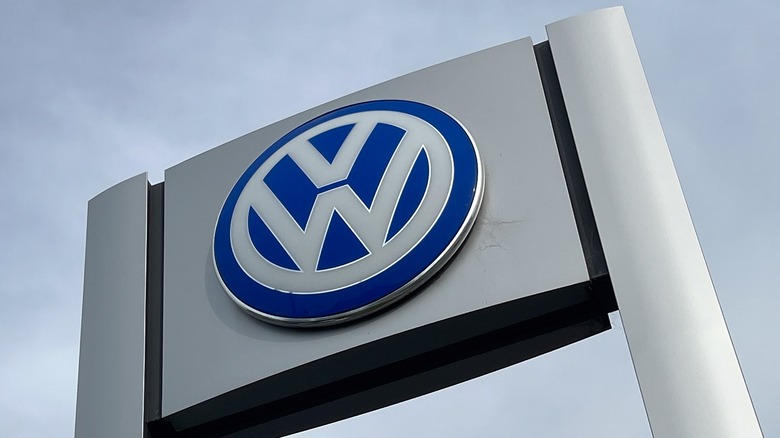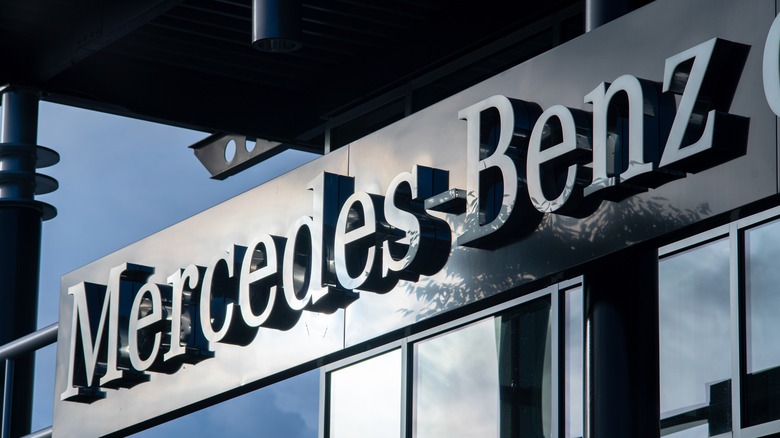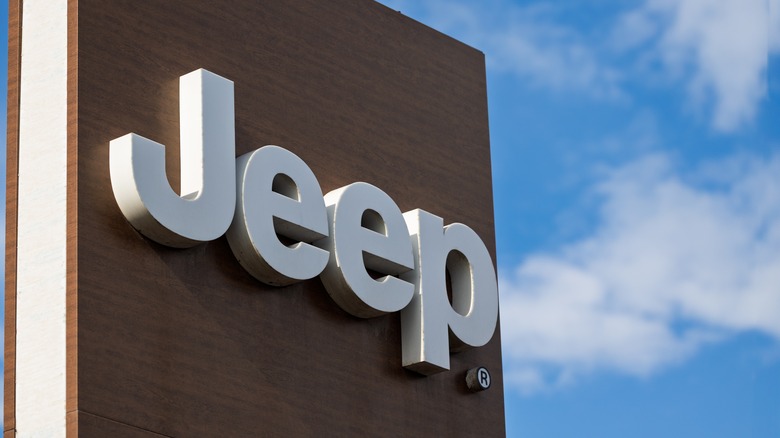Customers' Least Favorite Car Brands, According To Consumer Reports
Consumer Reports has published its 2025 Owner Satisfaction by Brand list, revealing just how more than 300,000 owners rated their cars. This satisfaction score is largely based on whether drivers say they would buy the same vehicle again once it is time to change their ride. This means that the results aren't necessarily linked to overall performance or excellence since a car might have the best quality and technology, but rate low in customer satisfaction for other reasons like inside noise or squeaky brakes. Instead, in-cabin experience, comfort, maintenance costs, and road tests are some of the more decisive factors.
For the second consecutive year, Rivian has topped the list with its R1S and R1T models, with 86% of owners willing to buy from the brand again. However, at the bottom of CR's list are brands scoring preference percentages between 61% and a bleak 51%. This group even includes the popular Mercedes-Benz and Jeep, but these aren't the only carmakers who find themselves among Consumer Reports' least-favorite car brands.
Mazda - Satisfaction Score 3/5, 61% would buy again
Mazdas have a certain beauty and a tough reputation, with the brand being generally affordable and stylish. Many vehicles, like the 2025 Mazda 3, have even earned Consumer Reports' seal of approval because of reliability. However, the brand itself ranked No. 18 on CR's list largely due to poor fuel economy and No. 8 in maintenance and repair costs, which total around $6,020 over 10 years of use. But on the whole, Mazda is reliable. It led the industry in Top Safety Pick+ awards for 2025 with eight models, such as the CX-30 and CX-70.
Also, the brand's depreciation is reasonable. iSeeCars, for example, shows the CX-5 giving up just 42.4% after five years. This is not bad, especially if you consider changing your car often. One of the best cars for retirees is the CX-5, a crossover SUV which, under $30,000, features plenty of interior space, decent infotainment, and a just-right size. That said, it has changed little since 2017, keeping most of its design untouched. As a warning, Mazda's prices may increase in the short run due to the fact it was the first car manufacturer to stop production in the U.S. after tariffs, with no one sure how tariffs might affect the market long term.
Acura - Satisfaction Score 3/5, 61% would buy again
Acura can be a sensible choice if you want luxury without the high-tax headaches. Acura is the luxury division of Honda, its parent company, just like Lexus is for Toyota. To illustrate, the Integra is essentially a more lavish version of the Honda Civic, and it's among the most affordable luxury cars you can buy despite the brand's placement on this list. Consumer Reports has praised Acura before for reliability and has ranked the brand No. 5 for both new and used vehicles, with a second-hand MDX deemed a good investment for retirees. CR also ranked Acura No. 20 (out of 32) in road tests and No. 20 (out of 28) in maintenance and repair costs, thus leading to an overall No. 19 (out of 27).
As a bonus, the Insurance Institute for Highway Safety (IIHS) reported that the 2025 Integra and MDX both earned Top Safety Pick awards. However, in August 2025 the National Highway Traffic Safety Administration did open an investigation into potential engine failure among over 1.4 million Honda and Acura vehicles with 3.5-liter V6 engines.
Audi - Satisfaction Score 2/5, 60% would buy again
Audi is a brand teeming with stunning technology and luxurious interiors across both its bank-breaking models and its most affordable models. Its Q3 and A3 vehicles are some of the most affordable luxury cars you can buy, and Consumer Reports has applauded several of the brand's SUVs and sedans for in-cabin comfort and elegance. Plus, safety remains strong. Per IIHS, Audi's Q6 e-tron was ranked good across all categories with top-tier crash-avoidance performance, exactly where you'd expect a cutting-edge EV SUV to be. In 2025, the German manufacturer ranked No. 4 in the deluxe brand category, No. 2 in road tests, and No. 7 in new car trustworthiness. However, in the used car reliability field, it ranked No. 14 out of 26, which dropped its total place to No. 20 out of 27 in owner satisfaction.
Audi's tend to have higher maintenance and repair/running costs (ranking No. 25 out of 28), one of five reasons buying a used luxury car is not always worth it. Owners have also reported problems with 5- to 10-year-old vehicles because of their complex engineering and parts that are pricey to replace. RepairPal also notes that the average annual repair costs for an Audi hover around $1,000. Depreciation-wise, iSeeCars pegs the Q7 at 61% depreciation after five years, while CarEdge says its around 53%. With that said, in 2025, Audi did recall over 44,000 vehicles after a software glitch was responsible for blacking out the instrument panel.
Buick - Satisfaction Score 2/5, 59% would buy again
Buick's SUVs feature nicer interiors than Chevrolet or Ford but don't tend to carry the high price tags of brands like Lexus or Lincoln. One of its models, the Encore GX, is among the best cars for retirees under $30,000, according to U.S. News & World Report. If you're into spacious varieties, check out the Envista, which is between a large sedan and a subcompact SUV, or the Enclave, a three-row SUV that was a Top Safety Pick+ by IIHS. On the maintenance front, Consumer Reports places the American company at No. 3, with around $5,300 in costs in the first 10 years. However, CarEdge estimates close to $8,993 in maintenance costs over the same period — $737 higher than the average for similar vehicles.
Buick ranked No. 11 in new car reliability and No. 6 in used car reliability, but left a lot to be desired in road tests, ranking No. 27 out of 32. CR's road-test score considers factors such as power delivery, handling agility, braking performance, seat comfort, ease of use for controls, and fuel economy. On depreciation, iSeeCars found that the Enclave shed almost 59% of its value after five years, while the Encore/Encore GX did a bit better at 54%. Overall, Buick ranked No. 21 out of 27 in customer satisfaction.
Ram - Satisfaction Score 2/5, 56% would buy again
Americans love powerful pickups, and Ram sells the whole package: quilted leather, coil-spring suspension to cushion rough roads, large cabins, and engine strength. In fact, the Ram 1500 stands as one of the cheaper alternatives to the popular Ford F-Series cars. It comes with a 305-horsepower 3.6-liter Pentastar V6 and delivers 22 mpg in two-wheel drive and 21 mpg in the 4x4 model. However, according to Consumer Reports, drivers are not quite smitten, ranking Ram No. 22 out of 27 in owner satisfaction. According to NHTSA filings, over 1.2 million Ram 1500s (2017-2024 models) were recalled over ABS software that could disable electronic stability control. Also, the agency opened a probe into rollaway risks on older trucks despite prior fixes.
CR ranked Ram at No. 21 for maintenance and repair costs, which total $8,605 over a decade. Per IIHS, the 2025 Ram 1500 Crew Cab holds a "Good" in the updated side impact test. When it comes to resale value, the Ram 2500 in its base model retains around 66.3% at five years, according to MotorTrend, while the 3500 keeps an impressive 77%.
Chrysler - Satisfaction Score 2/5, 55% would buy again
Some of Chrysler's most famous cars included the 300, New Yorker, Sebring, 1960 300F, Town & Country, and Cordoba. But as of 2025, it produces just a single model with variants: the Pacifica minivan (the premium offering) and the Voyager (the entry version). Consumer Reports placed this Stellantis brand at No. 23 out of 27 on its customer satisfaction ranking, and No. 26 out of 26 for used car reliability. To arrive at this conclusion, CR studied trouble areas coming directly from owners, including squeaky brakes, broken interior trim, out-of-warranty engines, transmissions, batteries, and EV charging.
For maintenance and repair costs, RepairPal places the brand's average at around $608 per year. However, Consumer Reports estimates a more comfortable $319 annually for the first five years. CarEdge, meanwhile, says maintaining and repairing a Chrysler Pacifica will cost $11,521 over its first decade. Also, there's a high likelihood that the Pacifica demands a hefty fix in that same decade. 2025, in particular, was rough for Chrysler with more than 250,000 Pacifica and Voyager minivans being recalled due to the fact the side-curtain airbags might not hold pressure. To make matters worse, iSeeCars found that the Pacifica, in particular, is a model with poor long-term value – dropping close to 55% of its worth at five years.
Nissan - Satisfaction Score 2/5, 54% would buy again
Despite Nissan having an acceptable score in road tests, Consumer Reports has placed it at No.24 out of 27 in owner satisfaction due to a rollercoaster of opinions across its different models. CR ranks the brand at No. 12 in new car reliability, No. 8 out of 26 in the used car category, and an excellent No. 6 out of 28 in maintenance and repair costs — $1,340 in the first five years and $5,935 in a decade. For safety, the IIHS shared that the 2025 Murano, Pathfinder, and Armada all earned Top Safety Pick+ ratings. The elephants in the room, however, are Nissan engines and EV batteries. In summer 2025, Nissan experienced a sweeping recall of around 480,000 vehicles tied to VC-Turbo bearing issues that lead to engine failure.
Meanwhile, the Nissan Leaf also experienced a recall of about 20,000 units over fire risks while fast-charging. Another Nissan that Consumer Reports has deemed unreliable is the Frontier. In December 2024, Consumer Reports scored it 27/100 due to transmission failures, drive system faults, and brake leaks. Regarding resale value, iSeeCars found that the Rogue gives up roughly 49% after five years, slightly above other compact-SUVs. However, CR does praise some Nissan options. For instance, if you're after a sedan that's affordable, CR praises the Nissan Sentra as one of the best cheap cars money can buy – awarding it an overall score of 78 out of 100.
Volkswagen - Satisfaction Score 2/5, 54% would buy again
Volkswagen builds vehicles that often feel more refined than its rivals. For instance, its SUVs feature cozy cabins, a high driving response, and more space. Notwithstanding, Consumer Reports ranks the German brand No. 25 out of 27 in owner satisfaction. Largely influenced by controls and infotainment systems that were deemed unintuitive, Volkswagen ranked No. 18 out of 22 in new car reliability. Based on IIHS safety data, the 2025 Atlas scored "Good" in small overlap and side, but only "Marginal" in the tougher updated moderate-overlap test. Meanwhile, RepairPal noted that average annual maintenance costs were $676. Meanwhile, iSeeCars found that the Tiguan and Jetta gave up roughly 40% to 48% of their value after the first five years.
Volkswagen experienced a 177,000-unit recall in early 2025 for its Atlas/Atlas Cross Sport due to engine covers that could come loose and contact hot components. Around the same time, another 60,000 Volkswagen and Audi vehicles (a subsidiary of Volkswagen) were recalled for shifter/gear-position display faults that could lead to rollaway risks. Plus, Volkswagen's 2015 Dieselgate is still fresh in many consumers' minds as it is among the largest recalls in recent history. At the time, Volkswagen had installed software to fool emission tests and skirt U.S. environmental regulations. This meant some Volkswagen diesel cars were emitting nitrogen oxide levels up to 40 times higher than legal limits. In 2017, Volkswagen confessed wrongdoing and paid $4.3 billion in penalties.
Mercedes-Benz - Satisfaction Score 3/5, 53% would buy again
One might assume Mercedes-Benzes would sit at the top of every category, with industry-leading comfort and tech. Despite that, Consumer Reports ranks the brand No. 12 out of 32 in road tests, and No. 11 out of 26 in used car reliability. CR also ranked the brand No. 26 out of 28 in maintenance and repair costs, and No. 26 out of 27 in owner satisfaction. Having a Mercedes in your garage means paying an average of $3,500 in upkeep in the first five years, and a whopping $13,100 over a decade. RepairPal estimates this total is actually at a bit more — around $900 annually.
In September 2024, over 27,000 S-Class variants and Maybach S580s with ECU software were recalled due to potential engine stalls. The NHTSA stated that the engine stall increased the risk of an accident, as well as the potential for a fire. Meanwhile the IIHS awarded the 2025 GLC and GLE the Top Safety Pick+ with "Good" crash scores across the toughened tests. While new Mercedes-Benz vehicles have a long way to go before matching legends like the R107 SL Series, now worth a small fortune, the brand's reputation could lead a current model to someday being a classic — if Consumer Reports improves its scores, that is.
Jeep - Satisfaction Score 2/5, 51% would buy again
In last place is another Stellantis brand, Jeep. In Consumer Reports' ranking, Jeep ranked No. #27 out of 27 in owner satisfaction (with only 51% of owners would buy again), No. 25 out of 26 in used car reliability — sharing this place with another Stellantis brand, Chrysler — and No. 32 out of 32 in road tests. Per CR, the Jeep Wrangler is noisy, has a rough and bumpy ride, and is not fuel-efficient. Maintenance costs are average, with $1,220 in upkeep in the first five years and an estimated $6,470 in 10.
On value retention, only the Gladiator and the Wrangler retained over 64% of their worth after five years, per iSeeCars. Meanwhile the Wagoneer has terrible resale value at just over 50%. Plus, a software defect on the Grand Cherokee, one of the least reliable cars according to Consumer Reports, lead to a 2025 recall due to the potential for sudden power loss. Similarly, the NHTSA issued a consumer alert regarding safety issues with hybrid and electric Wrangler and Cherokee models.
